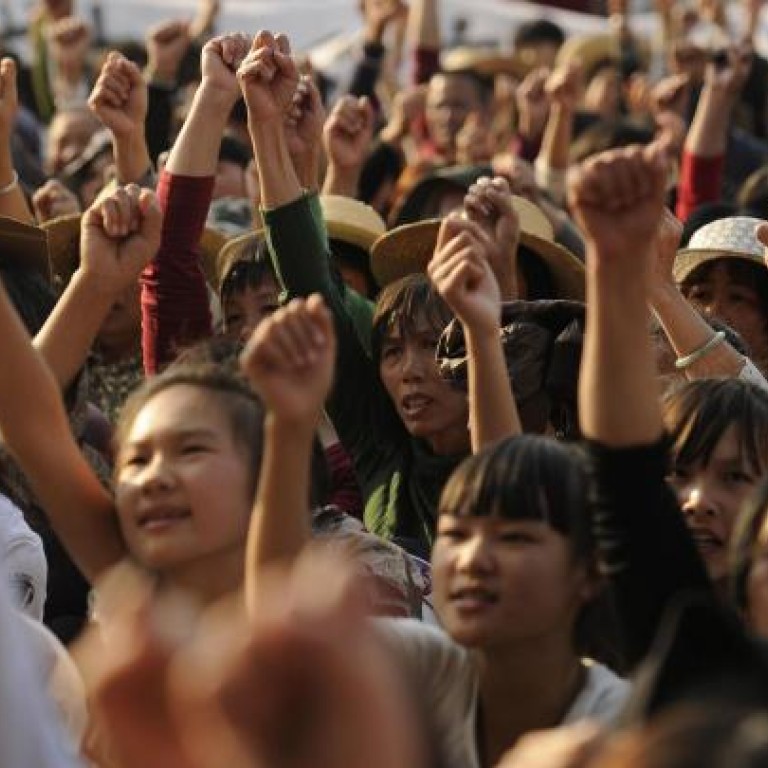
Land grabs are main cause of mainland protests, experts say
Confiscations and demolition of homes are the main cause of protests, experts say
Land seizures, pollution and labour disputes have been the three main causes of tens of thousands of mass protests in recent years, according to a top think-tank.

It said there had been more than 100,000 "mass incidents" - the central government's term for large protests involving more than 100 people - every year in recent years.
Professor Chen Guangjing, editor of this year's book, said that disputes over land grabs accounted for about half of "mass incidents", while pollution and labour disputes were responsible for 30 per cent. Other kinds of disputes accounted for the remaining 20 per cent.
"Of the tens of thousands of incidents of rural unrest that occur each year in China, the vast majority of them result from land confiscations and home demolitions for development," Chen told a news conference in Beijing yesterday.
Late last year, about 1,000 villagers from Wukan, Guangdong, rioted and overthrew corrupt local leaders who had profited from illegal sales of village land.
Chen said environmental concerns were also becoming a main cause of social unrest, as evidenced by a series of grass-roots demonstrations over polluting projects.
More than 20,000 people rallied in Xiamen, Fujian province, in June 2007 to protest against plans to build a chemical plant in the city.
The project was subsequently relocated and the Xiamen backdown sparked similar protests in several mainland cities.
The major cause of labour disputes was salary arrears. There over 120 protests that involved more than 100 workers each in the first eight months of this year.
Chen said courts and labour arbitration tribunals had dealt with 479,000 back-pay cases in the first nine months of this year.
The book says 120 million mainlanders are living under the poverty line - with per capita annual disposable income of less than 2,300 yuan (HK$2,830). The government last year raised the poverty line from the previous level of 1,200 yuan, set in 2008.
Professor Li Peilin, the blue book's editor-in-chief, said household income growth had lagged far behind gross domestic product growth over the past decade.

